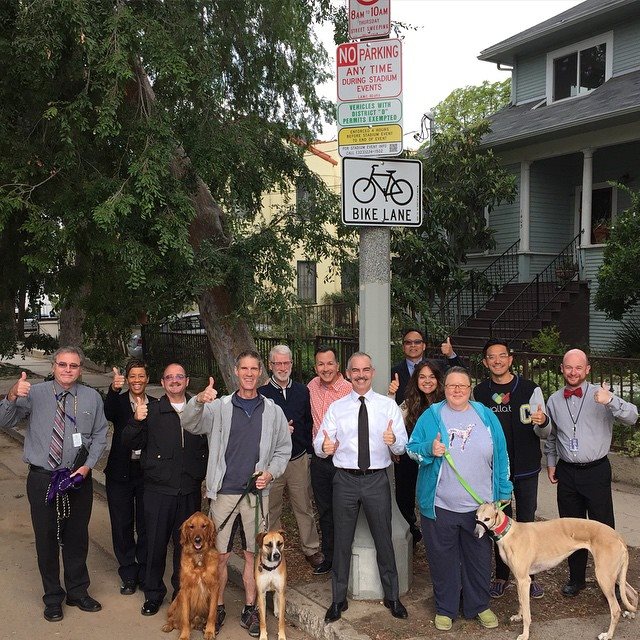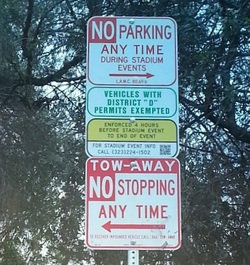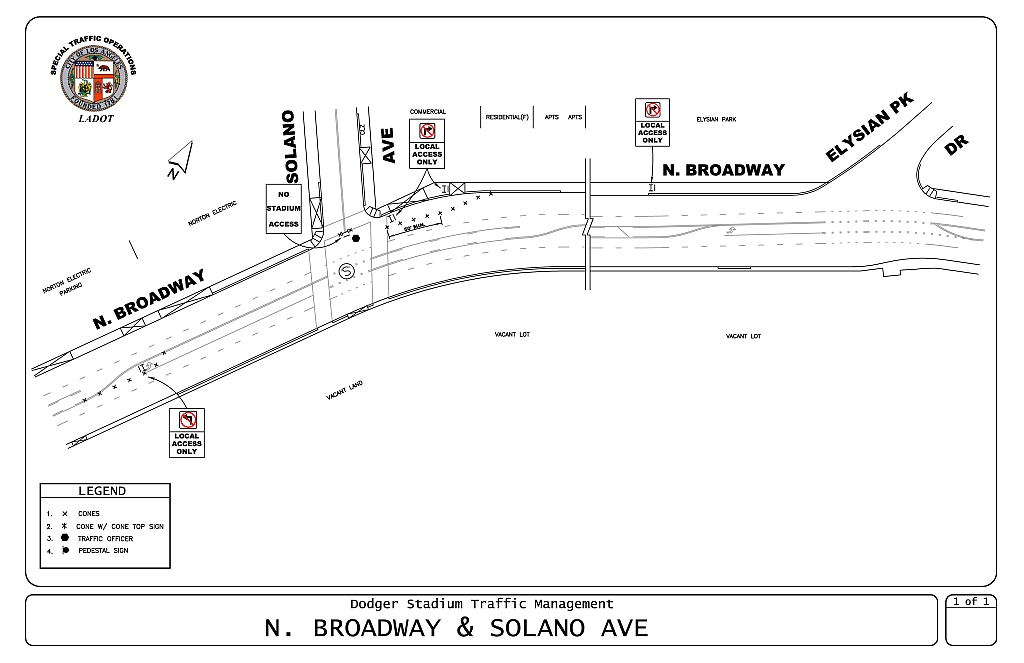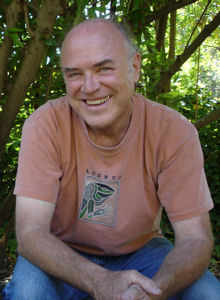|
The right to be treated equally under the law is fundamental to American society. It is probably safe to say that no one believes that he or she should be treated less-well than any other person. We all know that, unfortunately, the desire (indeed the right) to be treated fairly is not always reflected in the actual treatment one receives; however, the goal of fairness is a laudable goal that we should always keep in mind and try to live by. We live by the rule of law We live under laws that derive from many levels of government — Federal, state, and local, to name but a few. Although local laws usually take the form of ordinances, they are effectively laws, nevertheless. One such ordinance is Los Angeles City Ordinance 183135. This ordinance, effective on 08 July 2014, primarily governs parking issues at major sports and entertainment events in the City. Interestingly, the ordinance specifically mentions "... events at major sports and entertainment venues, including Dodger Stadium [my emphasis] ...". Two sections of the ordinance are of particular interest and warrant further inspection. The Transportation Committee finds that: 5. [T]he unrestricted parking of vehicles in the residentially [sic] developed neighborhoods adjacent to Dodger Stadium is causing traffic congestion, is resulting in a detriment to the public welfare from complaints associated with a significant increase in the number of parked vehicles during Dodger Stadium events including blocked driveways, excessive noise at night after the games, excessive litter and consumption of alcohol in vehicles, and is interfering with timely emergency vehicle access to and from the streets and residences in these neighborhoods for both Police and Fire Departments. Further, the Committee finds that: 6. [E]vents at major sports and entertainment venues, including Dodger Stadium, are defined as a Special Event by LAMC Section 41.20.1, and that the policy for Special In other words, Dodger games are 'special events' under the provisions of this ordinance, and they are therefore subject to the provisions of the ordinance. The ordinance goes on to say that the Los Angeles Department of Transportation (LADOT) is authorized to establish appropriate signage for such events and directed [i.e., required] to establish procedures to ensure the provisions of the ordinance are met. Who is most affected adversely by Dodger Stadium game-day traffic? Residents of two communities in particular — Echo Park and Solano Canyon — have long been seriously adversely affected by Dodger Stadium game-day traffic moving through the streets of their neighborhoods. What is meant by 'adversely affected' is that local streets have been used for ingress and egress to- and from the stadium on game days, a purpose for which they were not designed. The ordinance is specific in its description of the problems caused by this situation:
I would add one further bullet-point that was not enumerated in the ordinance, but which has been a point of contention with residents for years:
What Echo Park has done The community of Echo Park has, to its credit, already made use of the provisions of this ordinance. In this photograph, a dozen happy residents (along with three dogs) are giving a hearty 'thumbs-up' for the signage above them on the lamppost. But what does the signage, about which these residents are so happy, actually say? The top (red) portion of the sign says, NO PARKING ANY TIME DURING STADIUM EVENTS Baseball games at Dodger Stadium are 'stadium events'. OK, Dodger fans traveling to games in their cars cannot park on the marked streets in Echo Park. The middle (green) portion says, VEHICLES WITH DISTRICT 'D' PERMITS EXEMPTED What is a 'District D' permit? It's a permit that residents may obtain that allows them to park on the streets of their own community near their homes. That's a nice touch. Finally, the lower (yellow) portion of the sign says, ENFORCED 4 HOURS BEFORE STADIUM EVENT TO END OF EVENT What this all means is that, beginning four hours prior to any baseball game at Dodger Stadium, no parking on the marked streets in Echo Park is allowed for vehicles that do not display a resident permit. This is excellent. If the signage is obeyed — or, more to the point, if the rules elaborated on the signage are enforced — then the residents of Echo Park will have achieved some measure of peace within their community. Is this victory? Good for Echo Park! But is this truly victory over the perennial problem of Dodger Stadium game-day traffic? Not so fast ... Remember, under the rule of law, what applies to one applies to all. So what about the residents of Solano Canyon, who have been complaining about Dodger game-day traffic for as long as have the residents of Echo Park? Echo Park is in CD13; Solano Canyon is in CD1. The two communities are served by different City Council members, who apparently have differing priorities. The 'bottom line' here is that Solano Canyon has yet to be granted any relief from Dodger Stadium traffic, even though there has been a DOT plan in place since 2013 to mitigate traffic on Solano Avenue from North Broadway on game days. In practical terms, the DOT plan, above, has been abandoned, and in fact, it was never rigorously enforced (see my blog, A Disaster Waiting to Happen). Solano Canyon has never been granted any relief from Dodger Stadium game-day traffic. What's a Solanero to do? It would seem that there is but one thing to do: complain, loudly and vociferously, to Gil Cedillo, the City Councilman for CD1. One voice may, in fact, seem very small when pitted against a powerful and (apparently) disinterested force; but many voices — voices that reinforce each other — produce a sound of great volume that has a power that, in the end, cannot be ignored. Solano Avenue and Casanova Street are not — and should never have been — conduits for traffic to Dodger Stadium.
And remember: what is made available to one community should be made available to all communities. More to come ... |
About the AuthorLawrence Bouett is a retired research scientist and registered professional engineer who now conducts historical and genealogical research full-time. A ninth-generation Californian, his primary historical research interests are Los Angeles in general and the Stone Quarry Hills in particular. His ancestors arrived in California with Portolá in 1769 and came to Los Angeles from Mission San Gabriel with the pobladores on September 4, 1781. Lawrence Bouett may be contacted directly here.
Archives
July 2018
Categories |




 RSS Feed
RSS Feed
